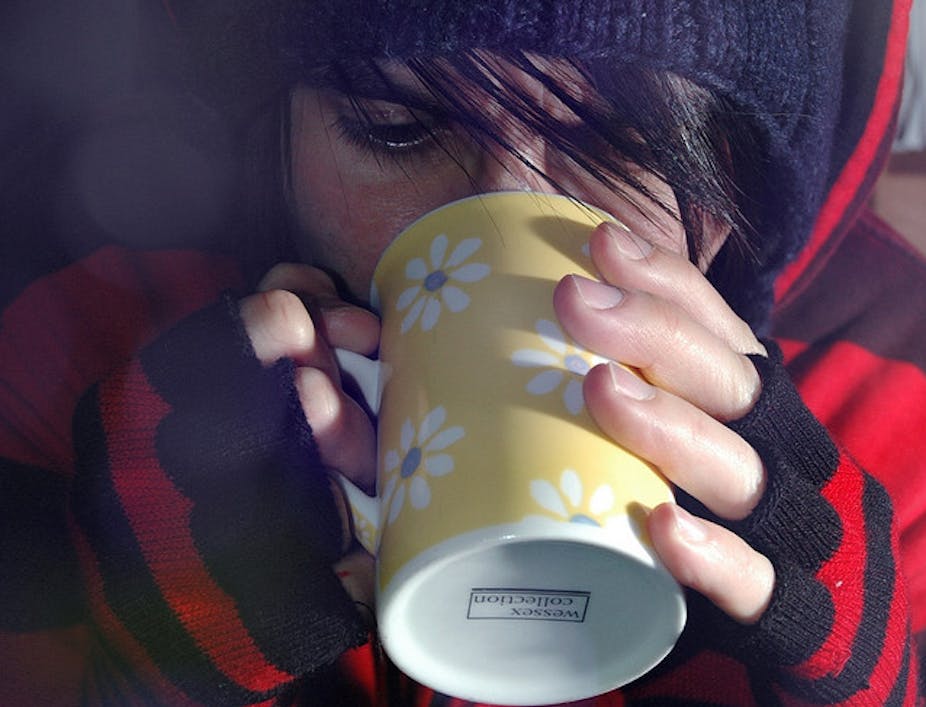When you’re sick with a cold, you’re likely to be told to rest and drink plenty of fluids – water, juice, tea and the old favourite, chicken soup.
This has been the prevailing advice for generations and seems to be intuitively sensible. With an upper respiratory viral infection, you secrete more fluid from the nose and may be running a fever, which could result in additional fluid loss. Your appetite may also be decreased.
When considering treatment for colds, we first need to work out the desired outcome. Shortening the illness, or, perhaps making the symptoms less severe, would get most people’s vote.
Having established the desired outcome, it wouldn’t be hard to set up a trial of people with coughs and colds, where half the group was urged to drink extra fluid and the other half allowed to drink simply when thirsty.
If the trial was set up fairly, and there were enough participants, we would have empirical information about whether drinking extra fluids was effective.
I was part of a small team that searched medical journals electronically for any such trials. What did we find? No one seems to have bothered to conduct the trials. Or if they have, they haven’t published them.
I could finish off here with some comment about it being a pity this hasn’t been studied properly, and the irresponsibility of folk who go around offering a treatment for which there is no evidence, (both of which I believe, incidentally).
But there is a small postscript. In our search for evidence we stumbled across some medical journal articles called “case series”, which outline unusual events that doctors think tell a lesson, or spark a research question.
The doctors describe how series of individual children they treated came to harm after being given extra fluids for what was initially considered a trivial cold (or upper respiratory infection).
Usually, the infection turned out to be more severe than initially anticipated. The children then suffered something called cerebral oedema, which is extra fluid in the brain. This can cause convulsions and brain damage because of the restricted space inside the skull, and can even lead to death.
The doctors writing these case series weren’t sure what had caused the cerebral oedemas. It might have been some effect of the infection, of course. But the doctors all suggested it might have simply been the extra fluids the patients were given – sometimes by the medicos themselves (by intravenous drips in a few cases).
This could be the result of the body secreting Anti-Diuretic Hormone, which temporarily shuts off our kidneys from excreting urine. This occurs in times of severe stress. Anti-Diuretic Hormone probably evolved in order to protect us mammals from dying of fluid loss when wounded or very ill.
But it might prove fatal if a person with a severe infection was persuaded to drink fluids they didn’t need (above that dictated by their thirst) and, at the same time, started secreting Anti-Diuretic Hormone.
Right now, this is all speculation. We don’t really know. But until we do, perhaps we should stop exhorting our sniffly kids to “drink more fluids” because they have a respiratory virus.

